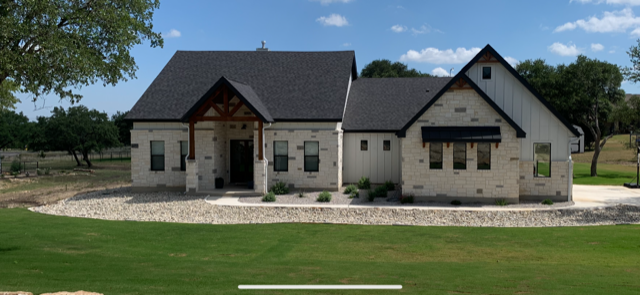Understanding Cost-Plus vs. Fixed-Price Contracts in Residential Construction
- Jessi Bourgeois

- Feb 3, 2024
- 2 min read

When building a custom home, one of the most important decisions you’ll make is how your project will be priced. At JJ Bourgeois Custom Homes, we offer different pricing structures to meet the unique needs of each homeowner. Two of the most common pricing methods in residential construction are cost-plus and fixed-price contracts. Each has its own benefits and drawbacks, and understanding them can help you make the right choice for your home-building journey.
Cost-Plus Pricing: Flexibility & Transparency
A cost-plus contract means that you pay the actual costs of construction (materials, labor, subcontractors, etc.) plus a predetermined percentage or fee for the builder’s overhead and profit.
Pros:
✔ Transparency – You see exactly where every dollar is spent.
✔ Flexibility – If you decide to upgrade materials or make changes, there are no penalties—you simply pay the actual cost.
✔ Customization – Ideal for highly personalized projects where costs may fluctuate based on selections.
Cons:
✖ Cost Uncertainty – Since the final cost depends on actual expenses, it can be harder to predict the total investment.
✖ More Oversight Needed – You’ll need to be involved in tracking costs and approving expenses throughout the process.
✖ Potential for Higher Costs – Without a set price, expenses can increase, especially if material costs rise or unexpected changes occur.
Fixed-Price Contracts: Predictability & Simplicity
A fixed-price contract means that you agree to a set price upfront based on detailed plans and specifications. The builder assumes the risk of any cost fluctuations or overruns.
Pros:
✔ Budget Certainty – You know the total cost before construction begins, making it easier to plan financially.
✔ Less Risk to Homeowner – If material or labor costs rise, the builder absorbs those increases.
✔ Less Hands-On Involvement – With a set price, there’s no need to approve every cost along the way.
Cons:
✖ Less Flexibility – Changes and upgrades after signing the contract typically come with additional fees.
✖ Potentially Higher Initial Price – To cover unforeseen costs, builders may include a contingency buffer in the price.
✖ Limited Transparency – Since the total price is set, you may not see a detailed breakdown of each cost.
Which Pricing Model is Right for You?
Choosing between a cost-plus and fixed-price contract depends on your priorities. If you want maximum flexibility and transparency and are comfortable with potential cost fluctuations, a cost-plus contract might be the best fit. If you prefer predictability and a set budget with minimal surprises, a fixed-price contract could be the way to go.
At JJ Bourgeois Custom Homes, we work closely with our clients to determine the best pricing structure for their unique project. Message us today to discuss your home-building plans, ask questions, and get started on bringing your dream home to life!

#CustomHomeBuilding #HomeConstruction #LuxuryHomeBuilder #DreamHomeDesign #NewHomeConstruction #CostPlusContract #FixedPriceContract #HomeBuildingCosts #ConstructionPricing #BuildingBudget #HomeBuildingProcess #CustomHomeDesign #HomeBuildingTips #BuildingYourDreamHome #ResidentialConstruction #TexasHomeBuilder #HillCountryHomes #JJBBuilders #HomeBuildingExperts #BuildWithConfidence

